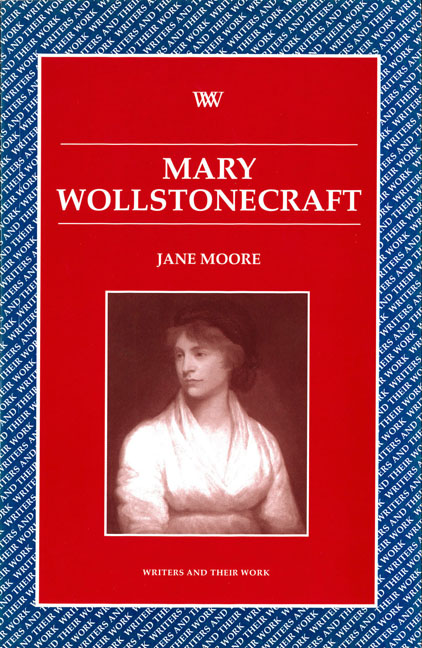Book contents
- Frontmatter
- Contents
- Acknowledgements
- Biographical Outline
- Abbreviations and References
- 1 Introduction: An Extraordinary Woman
- 2 Early Rebellion: Thoughts on the Education of Daughters, Mary. A Fiction, and ‘The Cave of Fancy`’
- 3 Professional Works: Original Stories from Real Life, The Female Reader, Translations, and Reviews
- 4 Revolutionary Protest: A Vindication of the Rights of Men, Vindication of the Rights of Woman, and The Wrongs of Woman: or, Maria. A Fragment
- 5 Romantic Ventures: An Historical and Moral View of the Origin and Progress of the French Revolution and ‘Letters to Imlay’
- 6 Final Destinations: Letters Written During a Short Residence in Sweden, Norway and Denmark, and Posthumous Works
- Notes
- Select Bibliography
- Index
5 - Romantic Ventures: An Historical and Moral View of the Origin and Progress of the French Revolution and ‘Letters to Imlay’
- Frontmatter
- Contents
- Acknowledgements
- Biographical Outline
- Abbreviations and References
- 1 Introduction: An Extraordinary Woman
- 2 Early Rebellion: Thoughts on the Education of Daughters, Mary. A Fiction, and ‘The Cave of Fancy`’
- 3 Professional Works: Original Stories from Real Life, The Female Reader, Translations, and Reviews
- 4 Revolutionary Protest: A Vindication of the Rights of Men, Vindication of the Rights of Woman, and The Wrongs of Woman: or, Maria. A Fragment
- 5 Romantic Ventures: An Historical and Moral View of the Origin and Progress of the French Revolution and ‘Letters to Imlay’
- 6 Final Destinations: Letters Written During a Short Residence in Sweden, Norway and Denmark, and Posthumous Works
- Notes
- Select Bibliography
- Index
Summary
As Wollstonecraft's professional fame expanded, so did her social life. The success of Rights of Woman brought her an advantageous offer of marriage from a ‘proper man’ with ‘a handsome house’ – which she turned down – (CL 210) – and a number of new intellectual friends. Among them were the painter John Opie, the novelist Mary Hays, and the poet William Roscoe, who wrote a satirical ballad reviling Burke and praising Wollstonecraft as the amazonian author of Rights of Men. Roscoe also commissioned the first of three portraits to be painted of her during her lifetime; the other two are by Opie and hang in the Tate and National Portrait galleries in London. The portrait commissioned by Roscoe, which is the least flattering, hangs in the Walker Art Gallery in his home town of Liverpool. In February 1792 Wollstonecraft was honoured by a visit in London from Talleyrand, to whom she had dedicated Rights of Woman; and in June of the same year she proudly reported to Everina, ‘my book has been translated [into French] and praised in some popular prints’ (CL 213). A German translation followed along with American and Irish editions.
Meanwhile the relationship with Fuseli dragged on. But by November 1792 Wollstonecraft had apparently had enough. On 12 November she wrote to Roscoe of her determination to abandon her ‘rational desire’ for Fuseli in favour of exploring new opportunities in France. She would go alone, she told him, adding jokingly: ‘At Paris, indeed, I might take a husband for the time being, and get divorced when my truant heart longed again to nestle with its old friends’ (CL 218).
True to her intentions, Wollstonecraft set off for France on 8 December, arriving in Paris during the first days of the trial of the King, which had opened on 11 December. The King's execution a month later, on 11 January 1793, heightened the political tension that finally found expression in the French declaration of war against the English in February 1793. War set the stronger Jacobins against the Girondins, among whom were most of Wollstonecraft's contacts. Many were later executed during the dark days of October and November 1793. Madame Roland, for example, the most important woman revolutionary Wollstonecraft met in Paris, was guillotined on 8 October.
- Type
- Chapter
- Information
- Mary Wollstonecraft , pp. 48 - 60Publisher: Liverpool University PressPrint publication year: 1999



